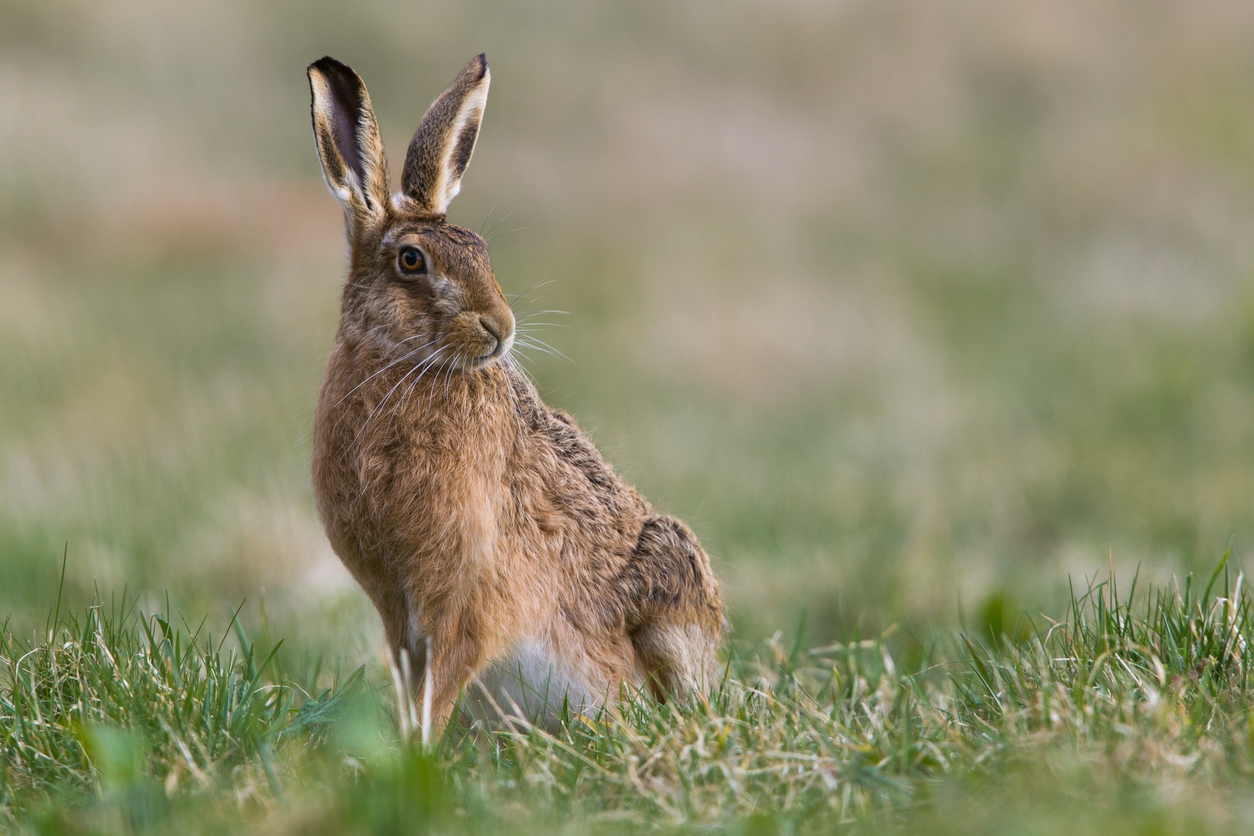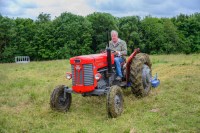Once upon a time, hare coursing was a respectable sport, practised by Royals and other members of the gentry. The Forest Laws, imposed after the Norman Conquest, were introduced to ensure that only the nobility could own greyhounds which is why lurchers – crossbreeds between a sighthound and another working dog – became both popular, and known as ‘poachers’ dogs’.
But in 2005 the Hunting Act arrived – changing everything. In 2019, I wrote in these pages about the current illegal hare coursing occurring across the country:
‘It was the Hunting Act that drove coursing underground, and at that point the rules of the game changed. In formal coursing events, a pair of dogs will be slipped (released) simultaneously, and chase after a hare when it runs. Hounds were traditionally awarded points for forcing the hare to turn — which they do far faster and more sharply than a greyhound. But in the gangster version of the sport, typically one dog is released at a time, and the winner is the one who can kill the most hares in a set number of slips.’
Back then, police forces were doing what they could to stop the crime; using drones, thermal imaging, and night vision goggles in an attempt to catch hare coursers. In other areas they went further: in East Yorkshire a helicopter and a fixed wing plane were deployed to stop the illegal coursers. The problem hasn’t improved; even during lockdown, reports of coursing continued to flood in.
But last week, things changed. Over the last couple of years, countryside and farming groups – alongside gamekeepers and landowners – have been pushing for amendments to the Game Act 1831, which would allow the police to clamp down on illegal hare hunting. The current legislation is perceived as being ‘outdated and archaic’, with the police able to do little more than issue fines, and move people on.
Defra announced last week that they have listened: they intend to amend both the Game Act and the Night Poaching Act of 1828, which would increase the maximum penalty for illegal coursing to an unlimited fine and up to six months in prison. They will introduce a new crime of ‘going equipped’ for hare coursing. And they will give police the power to reclaim the costs of kennelling dogs which have been seized in relation to hare coursing activities. Currently, the police have to carry the cost of kennelling the dogs themselves; which means that in the vast majority of cases, the dogs return to their owners immediately, and the coursing continues.
You might well wonder why so much new legislation is being brought in specifically to deal with this type of poaching. After all, while the Hunting Act does a good job of ensuring that official, regulated hunts stick to the law, poaching and other illegal hunting still happens up and down the country.
The problem here is that hare coursing isn’t just a bunch of blokes out with their dogs. Many of the people charged with coursing are linked to drug smuggling networks and have previous criminal history; guns, ammunition and cannabis have been found during hare coursing raids. The contests are often streamed on the dark-web so followers can gamble on the outcome – including, it is alleged, betting syndicates in China. It tends to reoccur in the same places: a survey of farming victims of hare coursing, published earlier this month by the Yorkshire Agricultural Society, showed that in 82 per cent of cases the same farm had been targeted at least three times since the start of last year. In 29 per cent of hare coursing cases the farmer did not call the police, as they didn’t think it was worthwhile.
But when it comes to farm owners and land owners, the real issues are the damage that hare coursers cause, and the violence and aggression that accompany them. In almost half of the cases reported in the Yorkshire Agricultural Society survey, farmers were either threatened or verbally assaulted, with one respondent reporting having been physically attacked.
86 per cent of those surveyed reported some kind of criminal damage; crop damage was the most widely reported (45 per cent), followed by damaged fences and hedges. There were also reports of livestock being killed, and other animals left to escape onto highways.
The hope is that the new legislation will enable the police to clamp down on the offenders; if they can remove their dogs, they can’t keep coursing. If they know they’ll do six months in prison, they might think twice. And if the fine is bigger than the amount they’ll make through streaming the contest, perhaps they won’t bother. No one could say that the problem is anywhere near being solved. But at least it’s a step in the right direction.








Comments